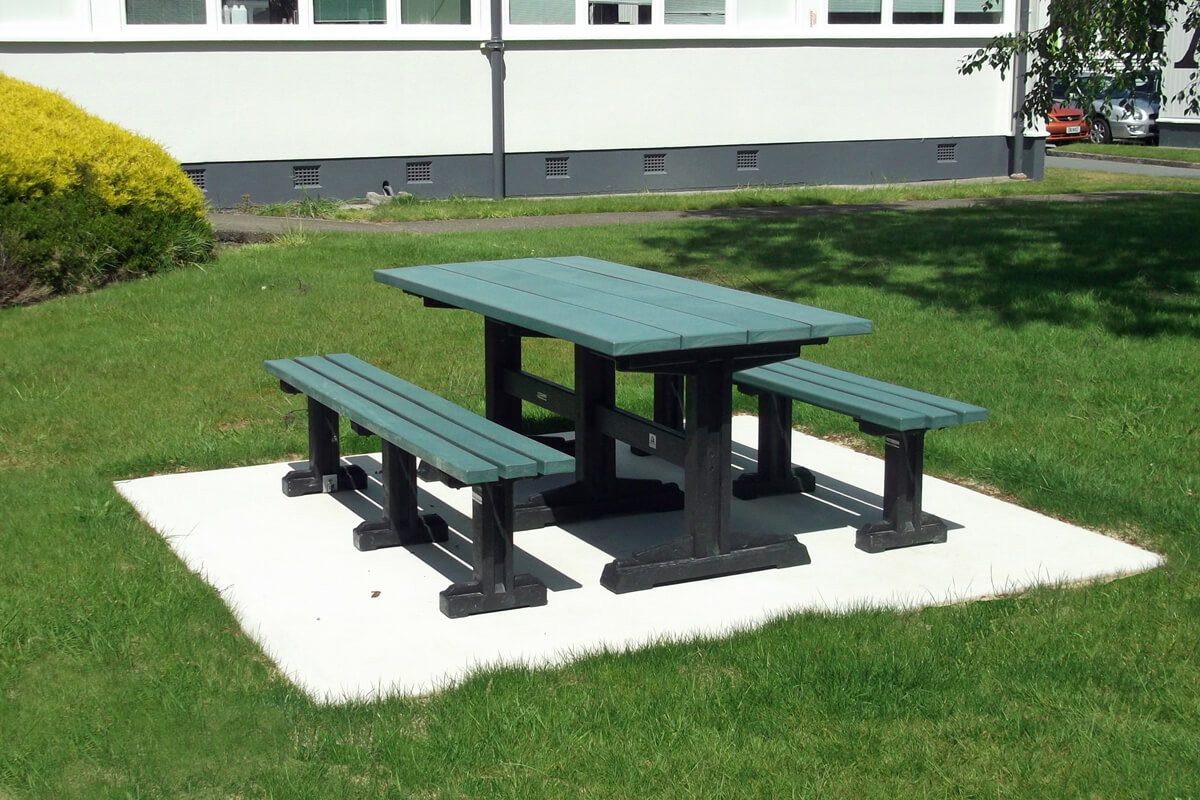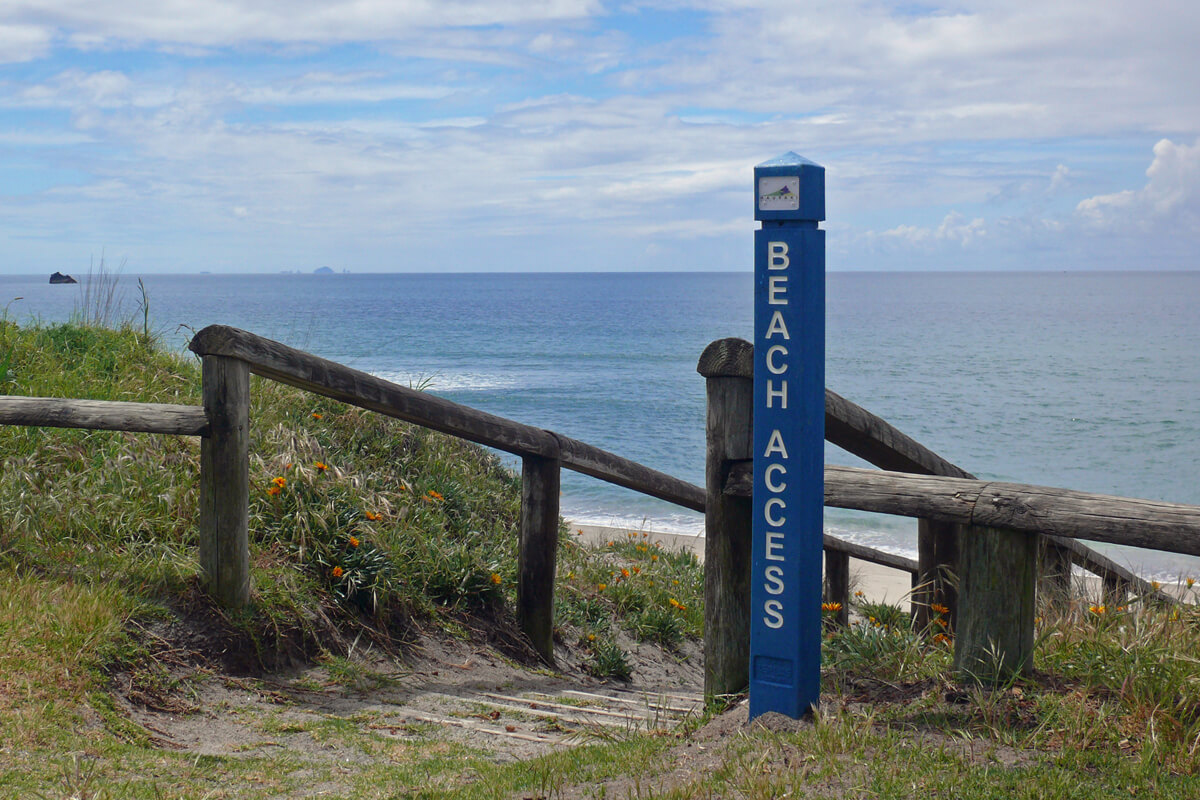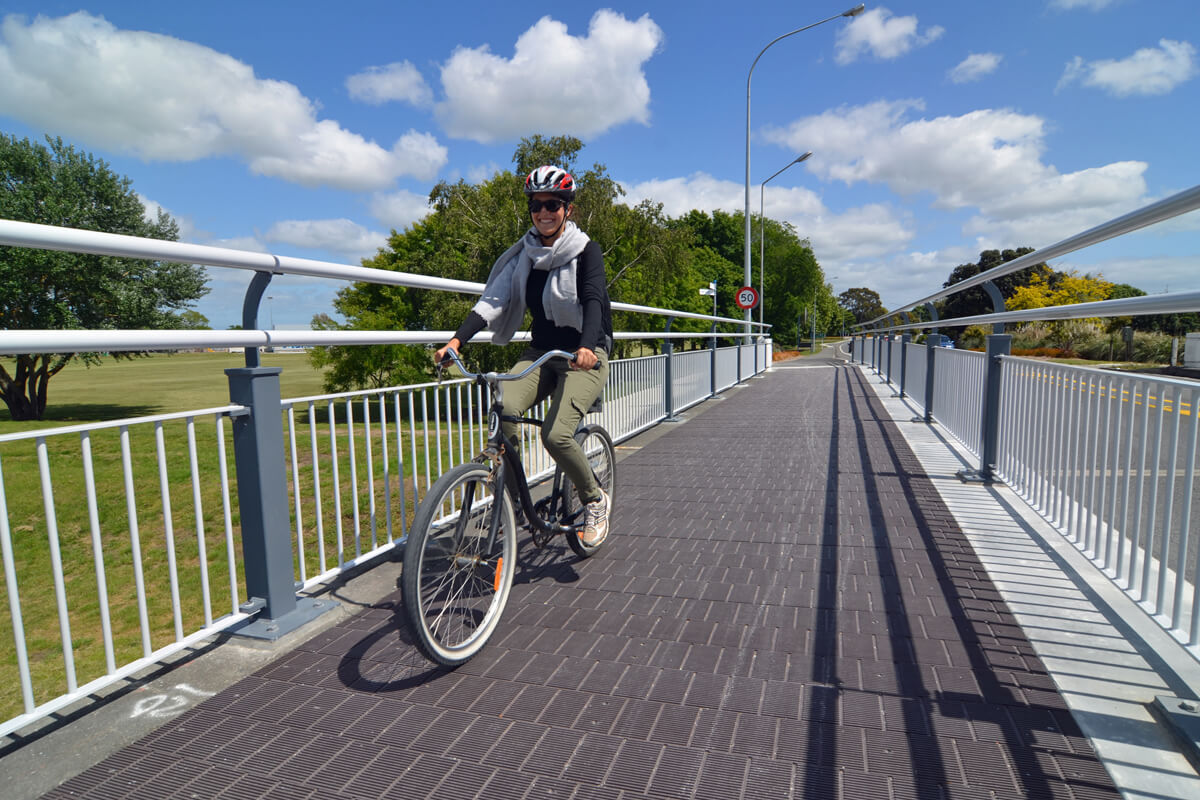In 2010 we were looking for opportunities to expand and develop our business. Metal Art had been founded by my dad in 1990, and we were keeping busy with our architectural lines, commercial planters, and a new venture into street and park furniture. As a local manufacturer we recognised an increasing need for product diversity and flexibility in response to changing customer trends.
With a street furniture division, we were now working with wood as well as metals. And if not hardwood it was treated pine, which got us thinking more and more about sustainability and the environment. We decided to look at recycled plastic as an alternative material, and found a potential supplier in Melbourne. We did some research among existing customers, mostly councils in this case, and were encouraged. And so Metal Art became the New Zealand distributor for Replas recycled plastic products.

Premier Picnic Setting
As well as park furniture, Replas makes traffic controls such as bollards and wheel stops, boardwalk decking, signage and a lot more. Much of what we buy from Replas is in the simple form of profiles cut to length, which we use on our steel frames as a straight substitute for hardwood seat slats.
What is so good about the Replas process is that both soft and hard plastics can be used. There is no market for soft plastic remanufacturing in New Zealand, meaning some 4.3 million plastic bags are thrown away every day, according to the Packaging Forum. And Replas products tolerate a small amount of contamination – paper labels, etc. Most remanufacturers require pure unadulterated plastic.
In Australia, Replas is a significant player in the amenity furniture market. There forestry is not such a dominant force in the economy, and there’s evidence to suggest the public is quite strongly opposed to chemical treatment of timber generally. Every year Replas turns 3,000 tonnes of plastic waste into its functional, low-maintenance, long-lasting products that make good use of the material – both hard and soft.
In New Zealand the good news is that a shift is taking place. In the six years we’ve been marketing Replas products, we’ve seen a gradual increase in acceptance of the material among councils and other customer groups. We recently supplied recycled plastic Enduroplank™ decking for an extended bridge walkway/cycleway on State Highway 2 in Hawkes Bay. That needed the NZ Transport Agency tick of approval, a significant step forward in helping the market understand the recycled plastic’s suitability for a wide variety of uses. When processed the right way of course.
It doesn’t surprise us any more when we’re grilled on the merits of importing recycled Australian plastic. We accept there will always be some skepticism about the environmental benefits of shipping the goods across the Tasman when alternatives are available. Even if some of them are tropical hardwoods. Sustainability underpins what we do here, and anyway, it’s only coming from Melbourne.
But there’s more to the product than sustainability factors. The Replas process creates a very durable product that stands on its merits quite apart from the environmental benefits. The life-cycle cost is lower than similar products made of timber, and it never needs painting. There’s an attractive colour range, it is resistant to the effects of the salt water environment, lichen and insects. And it’s easy to clean.
Whether talking plastic or any recyclable material, we’re big advocates of the ‘Pull Through Effect’. As demand grows, more plastic can be recycled, and we see that happening best in community partnerships. Organisations that want to see soft plastics recycled can be part of the solution by committing to purchasing products made from it. With enough buy-in, all that soft plastic waste will suddenly become a valuable raw material.
Replas has for some years been getting soft plastics through the REDcycle programme, supported by the Coles supermarket chain amongst others. Now with the launch of the Soft Plastics Recycling initiative there is a similar scheme in New Zealand, and we at Metal Art have been involved from the start. While the Packaging Forum was working on getting government support for the scheme, we were taking a lead role in facilitating the operational aspects.
From an environmental viewpoint the model is clear: take the public’s soft plastic rubbish, send it to Replas for processing, and buy it back in the form of quality products that give the base resource a second life that would last for decades. But environmental benefits are all very well. The scheme still has to work commercially.
For the New Zealand end of the operation, we brought the folk at Abilities Group on board to sort and ship the material. The RED Group, with its experience and links in Australia, supports the scheme internationally. The scheme began November 2015 in Auckland and has since expanded into Hamilton with the rest of the country to follow. Replas is standing by to receive its first shipment of usable soft plastics. In participating supermarkets and stores, shoppers now have a place to dispose of their soft plastics – ‘any you can scrunch in your hand’ – for collection and uplifting by reprocessing manufacturers.

Replas beach access bollard signs | Whiritoa
So the prospects are looking up for making productive use of all those plastic bags New Zealanders dispose of every day. And if it ends up at the Replas plant, it is likely to return someday as part of a footbridge such as the one at Ferrymead Park, Christchurch. Or a picnic setting like the ones Callaghan Innovation have scattered around their grounds. Or the bright blue beach access signs at Whiritoa Beach in the Coromandel.
And what of the fact that these products are Australian-made? Replas has invested in world-leading technology in order to create such a high-quality product. It makes no sense to try to duplicate that in our relatively small market, especially given Australia’s proximity and similar industry standards. The products are made in a safe and energy-efficient environment, and it’s an ethical source of supply we are more than comfortable with. And what’s the alternative for all that plastic?
There is still a way to go before soft plastic recycling will make the difference we want it to. But we’re satisfied with progress to date. And we’re delighted to be involved as a catalyst for change in the way New Zealand treats its plastic waste. A good thing for us about Replas products is we are putting them in some very public places. As more people get first-hand experience, they will become mainstream, I’m confident of that. Then we’ll be looking out for plastic to recycle.
I spend a lot of family time in the outdoors and see far too much plastic waste in the sea and the bush. Eventually perhaps, it will have such value that nobody would even think of tossing it away. Wouldn’t that be good for the environment.



Leave a comment